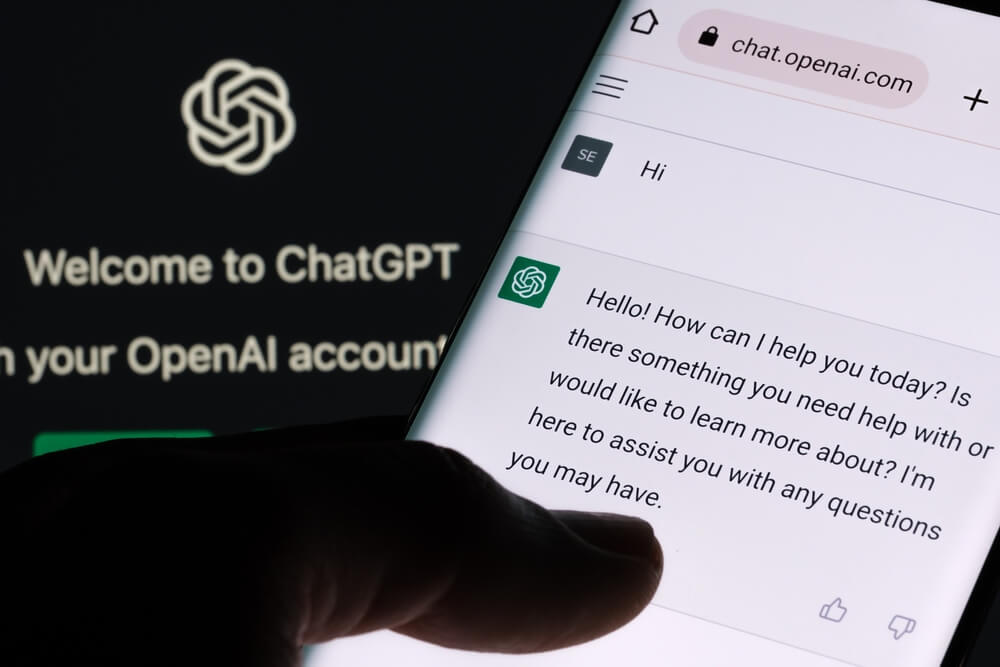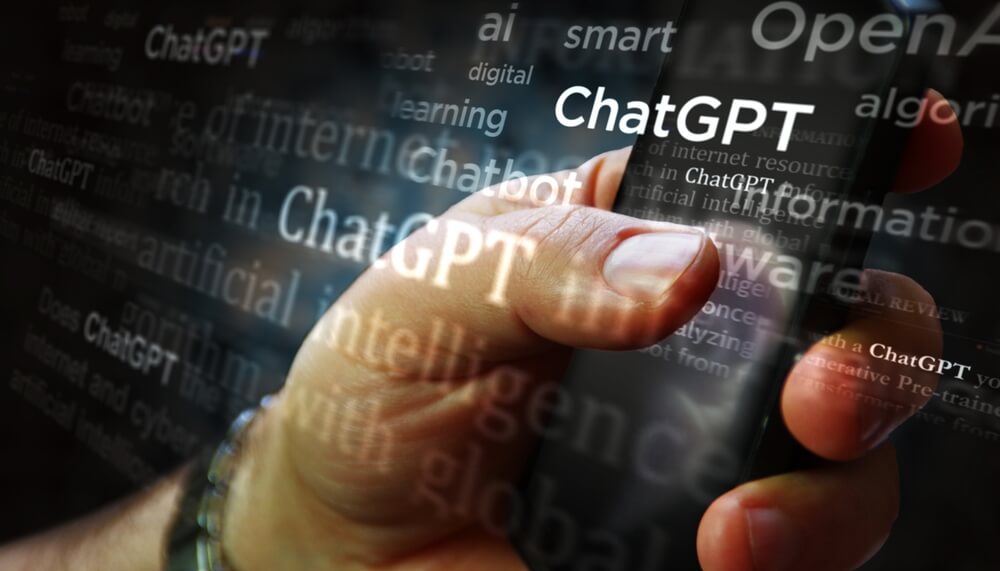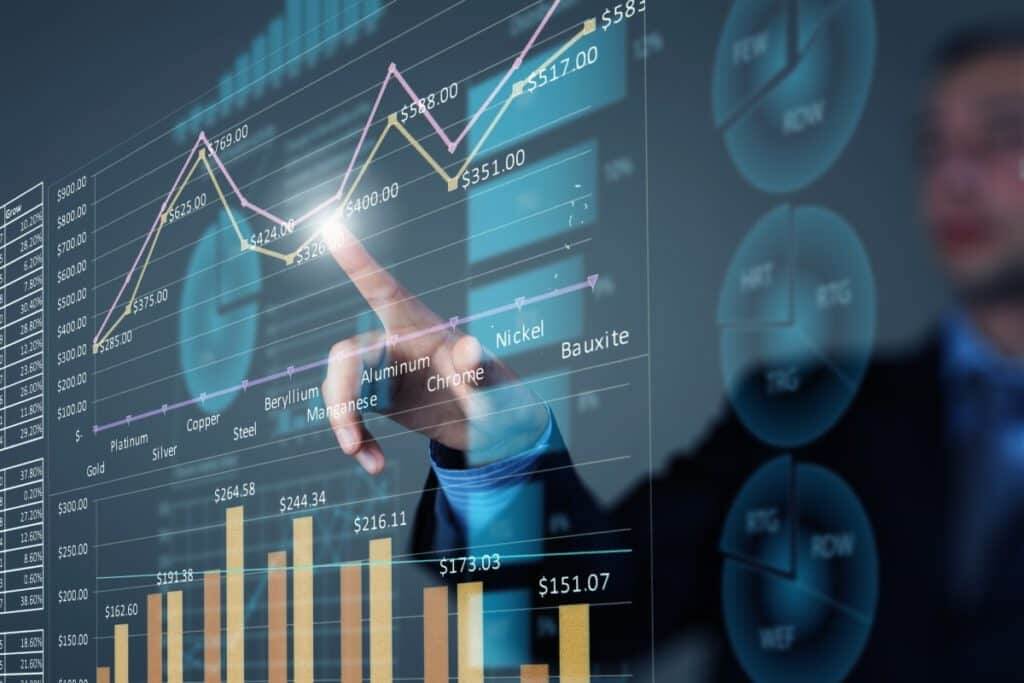
ChatGPT Trading: Revolutionizing Markets with Advanced AI
ChatGPT trading is an innovative approach to trading, and has already become very popular.
And integrating cutting-edge technology like ChatGPT, developed by OpenAI, can really be a game-changer.
But, what is the difference between AI trading and Algo trading?
Algo trading is a computer program that follows a set of instructions to execute a trade.
AI, like GhatGPT, on the other hand, is a machine learning system that helps analyze market conditions and data and predict what will happen.
In Algo trading, it is a human who sets the conditions that must be met. With AI, artificial intelligence is used to set conditions after reviewing different parameters and analyzing them.
ChatGPT AI is a powerful language model that harnesses natural language processing to analyze historical market data.
It offers a fresh perspective in the formulation of trading strategies. Traders can now leverage ChatGPT to create new approaches to executing trades.
It blends traditional technical analysis with insights gleaned from vast amounts of financial news and social media posts.
In this article, we show you all the power of ChatGPT in algo trading.
ChatGPT trading – Key Takeaways
- ChatGPT combines traditional technical analysis with insights from financial news and social media, aiding traders in strategy development and execution.
- ChatGPT works through a blend of NLP, Machine Learning, and Deep Learning.
- Its domain knowledge and language capabilities might not be sufficient for complex coding tasks. It requires backtesting to ensure reliability.
- Top algo trading strategies compatible with ChatGPT include Mean Reversion, Breakout Trading, Trend Following, and News-Based Trading.
- ChatGPT can aid in implementing machine learning for algo trading by providing consultation, coding assistance, and educational resources.
What is ChatGPT?
ChatGPT is a language model trained by OpenAI using cutting-edge artificial intelligence.
At first glance, ChatGPT may seem like an advanced computer program capable of processing natural language. But once the conversation begins, it becomes clear that he is much more than that.
With a sophisticated GPT-4-based architecture, ChatGPT can understand and respond to queries with near-human accuracy and relevance.
Perhaps the most striking aspect of ChatGPT is its ease of access. Available to the general public, it only takes a few clicks to start a conversation. The applications are endless. From students to professionals, everyone can find something useful for this tool.
ChatGPT excels in generating trading ideas by sifting through complex patterns in market data. Its ability to understand and interpret technical indicators allows traders to inform their trading decisions with enhanced precision.
Furthermore, by employing ChatGPT in the creation of a trading strategy, investors can explore new avenues in automated trading. This not only streamlines the process but also opens doors to developing more profitable strategies.
The application of ChatGPT extends to generating code for automated trading platforms, empowering traders to customize their approach.
This seamless integration of technology and trading expertise fosters an environment where traders can develop and test trading strategies based on a comprehensive analysis of market trends and data.
In essence, the use of ChatGPT in trading symbolizes a significant leap forward, transforming how traders interact with the market and execute their strategies.
How does ChatGPT work?

ChatGPT utilizes various state-of-the-art technologies such as NLP, Machine Learning, and Deep Learning in its construction.
These technologies are leveraged to create the model’s deep neural networks so that it learns and generates text data.
Natural Language Processing (NLP) in Trading
NLP is a branch of artificial intelligence that manages interactions between computers and humans using natural language.
This is a crucial element in the ChatGPT technical stack because it allows the model to understand and generate coherent content in natural language.
ChatGPT employs proven NLP methods like tokenization, named entity recognition, sentiment analysis, and part-of-speech tagging.
Machine Learning
Machine learning is a subset of AI that relies on algorithms to learn from data and make predictions based on it.
In ChatGPT’s development, machine learning trains the model on a vast corpus of text data to predict the next word in a sentence based on the previous words.
Deep Learning
Deep Learning is a subset of Machine Learning that relies on training neural networks on a large set of data.
Developers use Deep Learning to train its Transformer architecture model, a neural network successful in numerous NLP tasks.
Thanks to the Transformer architecture, ChatGPT understands and generates coherent text in natural language.
ChatGPT also relies on Reinforcement Learning in order to adjust its models according to the comments received on the quality of its responses and to increase its performance.
ChatGPT trading step-by-step guide
The prompt examples to implement in ChatGPT trading
ChatGPT can be useful in all stages of algo trading, from market data analysis to strategies backtesting. Here are some examples of proper prompts used for ChatGPT for algo trading.
Step 1: Market Data Analysis – Financial Forecasting with ChatGPT
You can perform sentiment analysis on news articles related to a particular stock or market. Here is an example from ChatGPT. The prompt use is : Give me an example of sentimental analysis on news articles related to a particular stock or market using the python code.
Fundamental Analysis
- Analyze the revenue growth of [Name of a company] over the past five years.
- Compare the debt to equity ratios of [Company X] and [Company Y].
Technical Analysis
Example Prompts:
- IDetermine the key support and resistance points for [Ticker Symbol] using the daily chart analysis.
- Evaluate the 14-day Relative Strength Index (RSI) for [Ticker Symbol] to understand its current momentum.
- Examine the Bollinger Bands on the weekly chart for [Ticker Symbol] to spot possible breakout or reversal opportunities.
Analyze assets information
Although the answer is quite short, it provides near-instant information and is particularly useful for quickly getting an overview of key upcoming dates. Traders can also dig deeper into specific elements of the response provided, such as asking for more details on expected headlines at the annual shareholder meeting and how they might influence the company’s stock price .
Step 2: ChatGPT for strategy selection

ChatGPT can help traders y by providing insights and info regarding different methods and techniques in trading.
Trading Strategy Development Example Prompts
- Develop a set of entry and exit rules for a swing trading strategy using [Stock Symbol].
- Outline a trading plan for [Company Name] using both fundamental and technical analysis.
- Suggest a simple moving average crossover strategy for trading [Stock Symbol] on a daily chart.
Step3: Backtesting ChatGPT Investment Strategies
Backtesting your trading strategy comprises simulation of trading performance relying on historical data. The process helps traders to assess the efficiency of a strategy and adjust it before investing real money in the market.
Here are some examples of ChatGPT prompts for backtesting trading strategies.
- Assess the effectiveness of a short-term swing trading approach with the RSI indicator on [Asset Symbol].
- Analyze the success of a contrarian approach in Forex trading with [Technical Indicator] applied to [Stock Symbol].
Step 4: Optimizing ChatGPT Trading Strategies
- Assess the consequences of modifying stop-loss and take-profit settings in a trading strategy for [Ticker Symbol].
- Examine the advantages of employing a trailing stop in a trend-following approach for [Ticker Symbol].
Step 5: Using ChatGPT to manage trading risks
Assessing the best position size is important for risk management. ChatGPT helps traders determine proper position size based on your strategy, asset type and risk tolerance.
Example Prompts for risk management:
- Calculate the appropriate size for a trade in [Stock Symbol], considering a risk tolerance of 3% per trade with an account balance of $15,000.
- Ascertain the suitable position size for a transaction in [Stock Symbol], applying a $2 stop-loss and a risk limit of 1.5% per trade, based on a $10,000 account balance.
Writing trading scripts with ChatGPT
So, how to use ChatGPT to implement machine learning for algo trading?
The area where ChatGPT can vastly support trading is the development of scripts that AI Trading Bots can use.
For instance, ChatGPT can create a script for an Expert Advisor (EA) to initiate call options on a stock when the system deems the asset oversold.
When you create an auto trading strategy using ChatGPT, you are not confined to a single indicator.
Additionally, you can request ChatGPT to write scripts in other languages, such as MQL4 and MQL5 for MetaTrader platforms or Pinescript for TradingView, even though it typically uses Python.
The main advantage is that ChatGPT can help create trading code using simple words and prompts. Retail traders do not need extensive coding knowledge or technical expertise.
Create an automatic AI-Powered trading algorithm with ChatGPT

Many traders have already adopted ChatGPT to create automation algorithms, both in the traditional market and for cryptos. While it was once necessary to master Python to create such a program, AI allows anyone to do the same.
Simply enter your trading strategy parameters and goals, and the chatbot can generate scripts based on these inputs. This makes it possible to automate the execution of purchases and sales according to defined signals and conditions.
After creating your tool, you can use it on a trading platform that allows automation. Among the best, we can cite IBKR and Thinkorswim. You can find many tutorials on YouTube and on the web, but let us know in the comments if you want a complete file on this subject!
Chat GPT serves as an AI-powered chatbot suitable for day trading stocks, forex, cryptocurrencies, and other assets. It can support technical and fundamental analysis, ChatGPT Quantitative Analysis, provide insight into market sentiment, and help identify entry and exit points. Traders also use Chat GPT to create scripts for trading robots, but with mixed results.
Creating a technical indicator with ChatPGT
For creating a technical analysis indicator we can use the following prompt: Create an indicator for TradingView that implements 50 and 100 moving average crossover to spot the best trading signals. For instance , buy or short sell when a 50 and 100 MA crossover takes place. And here is the response:
How to Use This Chat GPT Trading Script
- Add to TradingView: Copy and paste this script into the Pine Script editor in TradingView.
- Customize Parameters: You can modify the periods of the moving averages or the type of moving average (e.g., sma, ema).
- Add to Chart: Apply the script to your chart to see the moving averages and trading signals.
- Set Alerts: Configure alerts based on the buy and sell conditions for real-time trading signals.
- Backtesting: Before using this strategy for live trading, backtest it on historical data to understand its effectiveness.
Benefits of ChatGPT in trading
- The main benefit of ChatGPT for traders is that this tool can provide insight and real time data in financial analysis. It helps you in risk management and avoiding adversities like high volatility.
- It also can generate ideas for trading strategies based on specific predetermined criteria. ChatGPT acts as your trading assistant with whom you can discuss market conditions, strategis and concerns.
- It analyzes social media posts and trending news to gauge real time market sentiment.
- You can use it as an educational resource for trading.
- Finally, you can develop and backtest trading strategies and save time by performing complex calculations.
ChatGPT trading limitations
ChatGPT is a powerful tool. But it has several significant limitations when it comes to writing scripts for trading.
- First of all, the AI tool may not have sufficient domain knowledge, i.e. in-depth understanding of trading concepts and technical analysis.
- Additionally, ChatGPT is limited in terms of language capabilities. It uses a text-based language model that may be incapable of creating complex code structures.
- Finally, ChatGPT may struggle to adapt to new tasks beyond the scope of the models and data on which it was trained.
- It seems that creating a trading strategy with Chatgpt can be tricky since its program has limited contextual understanding. It may struggle to completely grasp complex market dynamics.
- ChatGPT gives generic recommendations sometimes, without considering a trader’s specific financial goals, risk tolerance, or trading preferences.
Top algo trading strategies to use with ChatGPT

The following are the best algo trading strategies you can use with CHatGPT:
- Mean Reversion: It serves to get the most of price deviation and help identify entry and exit points based on historical price.
- Breakout Trading: Breakout strategy aims to spot considerable price movement after a consolidation period. ChatGPT is helpful regarding identification of support and resistance levels, providing insights on potential breakout points.
- Trend Following strategy: This methodology comprises riding market trends. ChatGPT successfully identifies market trends and measures the strength and reliability of the trend.
- News-Based Trading: ChatGPT is a valuable tool for news and sentiment analysis. By combining them with price data, it can identify the potential of market moving events and their impact on assets’ prices.
How to use ChatGPT to implement machine learning for algo trading?
Here’s a high-level overview of the implementation process for machine learning in finance:
Define Your Trading Strategy and Goals
Determine what you want to achieve (e.g., short-term profit, long-term investment, risk level).
Choose a trading style that aligns with your goals (e.g., day trading, swing trading, position trading).
Data Collection
Historical Market Data: Collect historical price data (OHLCV – open, high, low, close, volume) for the assets of interest.
Alternative Data: Depending on the strategy, this might include news articles, social media sentiment, economic indicators, etc.
APIs: Utilize financial data APIs (like Yahoo Finance, Alpha Vantage) to gather data.
Data Preprocessing
Cleaning: Handle missing values, outliers, and errors in your dataset.
Feature Engineering: Create new features that might be predictive of future price movements (technical indicators, sentiment scores, etc.).
Normalization/Standardization: Scale the data, especially important for certain ML algorithms.
Model Selection

Choose an ML model based on the nature of your strategy (e.g., regression models, classification models, deep learning).
Popular choices include linear regression, decision trees, support vector machines, neural networks, and ensemble methods like random forests and gradient boosting.
Model Training and Validation
Split your data into training and testing (and possibly validation) sets.
Train your model on the training set.
Validate your model on a separate data set to check for overfitting and underfitting.
Backtesting
Simulate Trades: Use historical data to simulate trades according to your model’s predictions.
Performance Metrics: Evaluate the performance using metrics like Sharpe ratio, maximum drawdown, return on investment.
Implementation (Paper Trading)
Before going live, implement your strategy in a simulated environment with real-time data.
Monitor performance and make adjustments as necessary.
ChatGPT’s Role in Algo Trading
Consultation and Advice: You can ask ChatGPT for advice on different aspects of the process, like selecting ML models, feature engineering, or risk management techniques.
Coding Assistance: ChatGPT can help write Python code for data preprocessing, model training, evaluation, etc.
Educational Resource: Use it to understand complex concepts in ML and trading.
Now let’s ask ChatGPT to suggest a ML model using Python code in order to predict Apple stock price
Prompt: Suggest an ML model to forecast AAPL stock price. Also, give a python script for the same.
We got the following response:
How can ChatGPT help traders in making trading decisions?

ChatGPT can definitely help traders with useful insights and large amounts of data. These include coming up with financial news and social media post analysis. In general, it is a helpful tool particularly for sentiment analysis. Using the bit, traders are able to spot negative or positive market sentiment regarding specific assets and implement that in making decisions.
One of the main perks is certainly helping traders to code, enabling them to spot price patterns and use them in making better trading decisions.
However, remember you should always validate the AI-Driven Market Predictions with other methods and sources.
Future of ChatGPT
Given rapid improvements in chatgpt technology regarding contextual understanding, it’s sure that this language model will be able to better interpret complex queries and provide precise answers.
By learning from a large amount of data, its knowledge base will definitely expand. The chat bot will be better equipped to come up with more accurate answers regarding every niche including algorithmic trading. Moreover, we expect that ChatGPT will be integrated directly into the trading dashboards. It could allow traders to access data directly and implement them seamlessly.
Bottom Line: Is ChatGPT a reliable tool for trading?
You will stumble upon many experts saying ChatGPT cannot be a revolutionizing tool in trading. Yes, it is a handy tool and particularly if you are a beginner trader. But in order to leverage it to its best capacities you need to grasp trading mechanisms, markets’ intricacies .
You should already be able to deliver a decent strategy on your own. In that case, Chat GPT can help you in trading. Using it blindly by just entering the prompts doens’ lead you anywhere. To test the strategies we recommend using trading journal templates to record your trades.
Moreover, ChatGPT in trading involves many risks. ChatGPT can assist you in creating scripts for ChatGPT algorithmic trading. But you have to use it with precautions and backtest everything before implementing in the market.
Finally, don’t expect it to be a magical tool that will make you a billionaire. It’s an extra tool that helps you find and analyze valuable data and information. It can help analyze various assets, such as US technology stocks, and, to some extent, it can support the development of scripts for automated trading robots. But it cannot yet replace expert financial advisors entirely.




